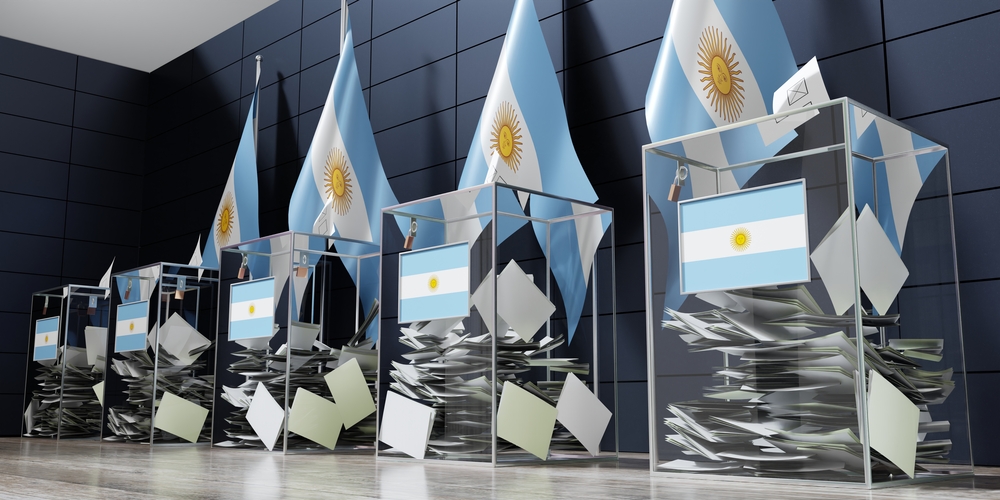Argentina has yet to elect a new president, but based on the leading candidates, economic liberalization is inevitable.
On August 11, when a national primary election was held, the pro-government coalition led by current Minister of Economy Sergio Massa received a meager 27% of the total vote, behind two opposition leaders: Javier Milei (30%) and Patricia Bullrich (28%). Heading into the general election in October, both Milei and Bullrich promise strong liberalizing reforms for Argentina’s repressed economy. Though their proposals might look opposed at first glance, what separates Milei’s and Bullrich’s approaches is a question of how fast this liberalization should take place.

Milei’s approach resembles shock therapy, while Bullrich’s is more moderate. Their economic teams, which are full of former officials from previous administrations, reflect this view. Milei is supported by Austrian-school economists, Bullrich by the classical liberal mainstream.
Javier Milei, a libertarian, self-described ‘anarcho-capitalist,’ and an outsider who only started his political career in 2021, has a radical platform to restructure Argentina’s economy. He plans to adopt the American dollar, do away with the Argentine peso, and close Argentina’s Central Bank –– which he blames for the country’s catastrophic inflation history. He has also called for tax cuts, sweeping public spending reductions, the privatization of some state-owned companies, and the elimination of over half of the country’s ministries. That’s a lot of big changes to propose.
Former Minister of Security Patricia Bullrich agrees that the country needs to liberalize, but takes a more restrained approach. Instead of dollarizing the economy, she says Argentina should allow pesos and dollars to compete, which implies getting rid of currency controls by the Central Bank but not its elimination. Like Milei, she is a proponent of tax cuts, but only insofar as they are compatible with a balanced budget. Though privatizations are absent from her platform, she stresses the need to improve the operations and profitability of state-owned companies.
The debate between Milei and Bullrich –– on how to end Argentina’s seemingly permanent fiscal crises –– resembles that of 2015, when then-candidate Mauricio Macri debated whether he should take a ‘gradualist’ or a ‘shocking’ course of action. In the end, President Macri’s administration decided on the gradualist approach, which resulted in a notorious failure that neither Milei and Bullrich want to repeat.
Indeed, nobody wants another liberalizing attempt in Argentina to end in an IMF bailout, particularly as the consequences of failure grow more acute. In a closed, heavily regulated economy with over 40% the population living under the poverty line, an ever-increasing debt and 120% annual inflation, liberalization cannot be avoided.
Undoubtedly, the costs of liberalization will be high. Lifting barriers to trade could threaten businesses which have grown accustomed to protectionism. Reducing government handouts would hurt the poor. Modernizing labor legislation and privatizing state companies would almost certainly result in laying off unproductive workers. Any major reform––even a necessary one––produces undesirable outcomes. But reforming Argentina’s economy is worth these downsides.
And despite the known differences in their approaches, there is much agreement between the two main contenders to Argentina’s presidency. Since becoming the front-runner, Milei has begun lowering expectations for immediate change, saying that dollarization, for example, could take years. He says the conditions for implementing reform include a balanced budget and significant changes in tax legislation.
Bullrich, in turn, is becoming more hawkish. She hopes to attract voters who are considering Milei but doubt his ability to implement reform, given his lack of experience in office and that his coalition will not hold a majority in Congress after the election. She says that only her administration could actually implement change in Argentina.
Thus, Milei and Bullrich have different platforms but are increasingly converging. One thing is certain: Liberalization is coming to Argentina. The only question is how fast.
Marcos Falcone is the Project Manager of Fundación Libertad and a regular contributor to Forbes Argentina. His writing has also appeared in The Washington Post, National Review, and Reason, among others. He is based in Buenos Aires, Argentina.


READER COMMENTS
Thomas L Hutcheson
Sep 10 2023 at 1:55pm
“Fast” has the advantage of avoiding the risk of liberalizing some thing while others are not, potentially making things worse. One element of “fast” that should be avoided is sudden disinflation. By all means eliminate fiscal deficits, but some purely monetarily driven inflation can be helpful in letting relative prices adjust to the massive supply and demand shocks implied by structural liberalization.
Comments are closed.